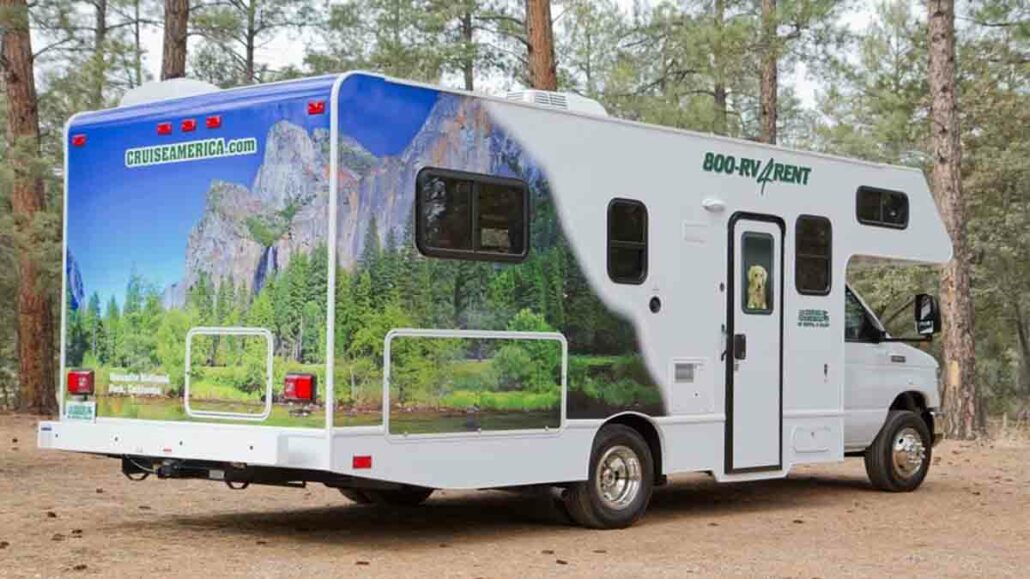The recreational vehicle (RV) rental industry has experienced significant growth in recent years, catering to a diverse range of travelers seeking flexible and immersive vacation experiences. From budget-conscious adventurers to luxury-seeking families, Recreational Vehicle for rent offers a unique opportunity to explore destinations at one’s own pace while enjoying the comforts of home on wheels. With a variety of RV types available, including motorhomes, travel trailers, and camper vans, renters can select the perfect vehicle to match their trip and group size. As the demand for outdoor recreation and alternative accommodations continues to rise, the RV rental market shows no signs of slowing down.

RV rentals have become increasingly popular as a convenient and affordable way to explore the open road. These versatile vehicles provide travelers with the freedom to create customized itineraries and experience destinations in a way that traditional hotels or vacation rentals cannot match. Whether it’s camping in national parks, attending music festivals, or simply road tripping across the country, RV rentals offer a practical and enjoyable solution for a wide range of travel preferences.
Why Rent an RV?
Renting an RV offers a unique and flexible vacation experience. Enjoy the freedom to set your own itinerary, explore off-the-beaten-path destinations, and save on accommodation costs. Whether you’re a solo adventurer, a family seeking a fun-filled getaway, or a group of friends embarking on a road trip, an RV rental can be the perfect choice.
Types of RVs for Rent
The RV rental market offers a diverse range of options to suit various travel preferences and group sizes. Here are the primary types of RVs available for rent:
- Motorhomes: These self-contained vehicles offer the ultimate in convenience and comfort. Divided into classes A, B, and C, they vary in size, amenities, and driving experience. Class A motorhomes are the largest and most luxurious, while Class B (camper vans) are compact and easy to drive. Class C motorhomes fall in between, offering a balance of space and maneuverability.
- Travel Trailers: These towable RVs come in various sizes, from lightweight pop-up campers to spacious models with multiple slide-outs. They require a suitable vehicle for towing but offer flexibility and affordability.
- Fifth-Wheel Trailers: Larger than travel trailers, fifth-wheel RVs connect to the bed of a pickup truck for towing. They provide ample living space and often feature luxurious amenities.
- Toy Haulers: Designed for adventure enthusiasts, toy haulers combine living quarters with cargo space for motorcycles, ATVs, or other toys.
By understanding the different types of RVs, renters can select the perfect vehicle to create unforgettable memories on the open road.
Factors to Consider When Renting an RV
- Group Size: Determine the number of people traveling to choose the appropriate RV size.
- Budget: Set a realistic budget for your RV rental, including fuel, camping fees, and other expenses.
- Desired Amenities: Consider essential amenities like kitchen facilities, bathroom, sleeping arrangements, and entertainment options.
- Driving Experience: Assess your driving comfort level, especially for larger RV types.
- Rental Duration: Determine the length of your trip to choose the right rental period.
Popular RV Rental Destinations
The United States offers countless breathtaking destinations for RV enthusiasts. Here are some popular options:
- National Parks: Explore iconic parks like Yellowstone, Yosemite, and Grand Canyon.
- Coastal Highways: Enjoy scenic drives along the Pacific Coast Highway or Route 66.
- National Forests: Immerse yourself in nature’s beauty with camping in national forests.
- State Parks: Discover hidden gems and enjoy outdoor activities in state parks.
- Urban Adventures: Experience city life with the convenience of an RV as your home base.
Essential Tips for RV Rental Success
- Plan Your Itinerary: Create a detailed itinerary to optimize your travel time and enjoy your destinations fully.
- Pack Smartly: Bring only essential items to maximize space in your RV.
- Vehicle Inspection: Thoroughly inspect the RV before leaving the rental location.
- RV Driving Safety: Familiarize yourself with RV handling and safety measures.
- Camping Etiquette: Respect fellow campers and campground rules.
- Emergency Preparedness: Prepare for unexpected situations with a first-aid kit and emergency supplies.
RV Rental FAQs
How much does it cost to rent an RV?
The cost varies based on RV type, rental period, location, and season. Expect to pay anywhere from $50 to $300 or more per night.
Do I need a special license to drive an RV?
Requirements vary by state. Some states require a commercial driver’s license (CDL) for larger Class A motorhomes, while others may only require a standard driver’s license.
Can I rent an RV with a pet?
Many RV rental companies allow pets, but there may be additional fees or restrictions. Be sure to inquire about pet policies before booking.
What should I pack for an RV trip?
Essential items include bedding, kitchenware, toiletries, clothing, camping gear, and entertainment for everyone.
How do I find RV campgrounds?
There are numerous online resources and mobile apps dedicated to finding campgrounds. Popular options include [invalid URL removed], RV Park Reviews, and AllStays.
Is RVing safe?
RVing can be safe if proper precautions are taken. Follow traffic laws, maintain your RV, and be aware of your surroundings.
Conclusion
Renting an RV opens up a world of possibilities for adventure and exploration. By carefully considering your options, planning your trip, and following essential tips, you can create unforgettable memories on the open road.

